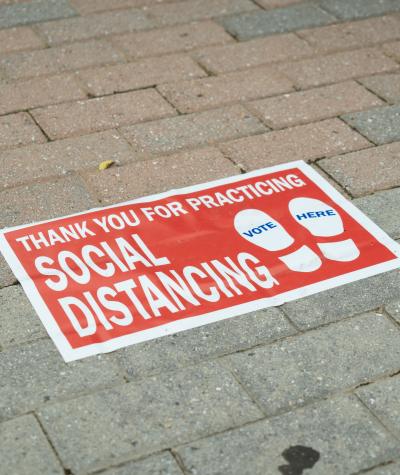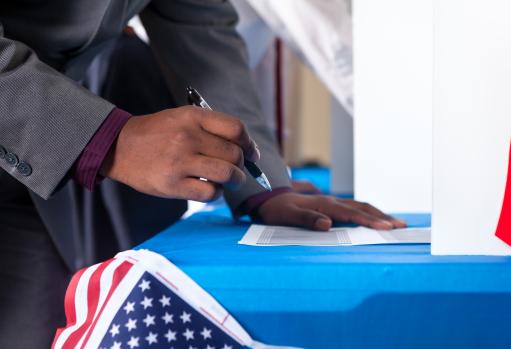Voting rules and processes vary widely in states across the country, often making it difficult to know how to support on-the-ground efforts to ensure every eligible voter can cast a ballot. To assist, Campaign Legal Center (CLC) has compiled a list of resources to help voters in states and localities across the country be able to vote.
Resources on Vote-By-Mail States
We Can Vote is a nonpartisan resource center that centralizes the most recent developments on elections and vote-by-mail in each state. It also provides ways to “Take Action” in your state, including a link to volunteer as a poll worker, which directs you to the U.S. Vote Foundation.
RepresentUs: “How to Vote by Mail this November”
This resource has a state-by-state graphic with vote-by-mail excuse requirement status, and a list description providing information on applying online, application deadlines, deadlines to submit ballots, and links to get mail ballot applications.
ACLU: Let People Vote
This state-by-state resource provides information on deadlines to request a mail ballot, who is currently allowed to request a mail ballot, and information on where to do that. It also includes “voting tips” for voting by mail and additional resources, including multilingual hotlines.
National Vote At Home Institute
This organization provides information on requesting your mail ballot as well as a link to volunteer to be a poll worker.
Washington Post: Vote-by-Mail State Graphic
This is an up-to-date graphic with vote-by-mail status for each state that also tells you how many Americans are currently able to vote by mail. This also tracks which states have made changes to their excuse requirements for absentee voting. The New York Times has an almost identical resource.
Resources on In-Person Early Voting
Vote.org: Early Voting By State
This lists the in-person early voting windows for each state, in case anyone wants to vote in person but avoid the lines of Election Day.
Poll Worker and Other Election Volunteering Resources
Common Cause: Election Protection Volunteer Resources
This resource has a link for legal professionals to volunteer, as well as resources for nonlegal professionals to sign up for their poll monitoring program in each state.
Power the Polls is spearheading national recruitment efforts. It is powered by Work Elections, a project of the Fair Elections Center.
Election Assistance Commission: Help America Vote
This tool gives state-by-state information on how to volunteer as an election worker. It also uses data from Work Elections.
All Voting Is Local: Be a Poll Worker
This resource provides a FAQ page about being a poll worker. It has a form you can fill out to be connected to your local election office to sign up.
American Bar Association: Poll Worker, Esq.
This resource helps lawyers and students register to become poll workers in their communities. Lawyers who complete the poll worker training may be eligible for Continuing Legal Education credit.
Miscellaneous Resources
Democracy for President Report
This report gives Americans insights, tools, and guidance for holding meaningful discussions about having a secure, peaceful election and finding ways to come together once the results of the election are finalized. It has information about safe and secure methods of voting, including mail-in voting, techniques for guarding communities against misinformation, timelines for counting and verifying ballots and announcing results, and suggestions for how to respond to different election scenarios.
ACS Youth Poll Workers Chart
This is a 50-state chart with the law for each state regarding whether people younger than 18 can serve as poll workers. Forty-five states and the District of Columbia have some provision permitting youth poll workers; Virginia, Oklahoma, New Mexico, Montana, and Alabama have no youth worker programs. The data is all from 2016.

